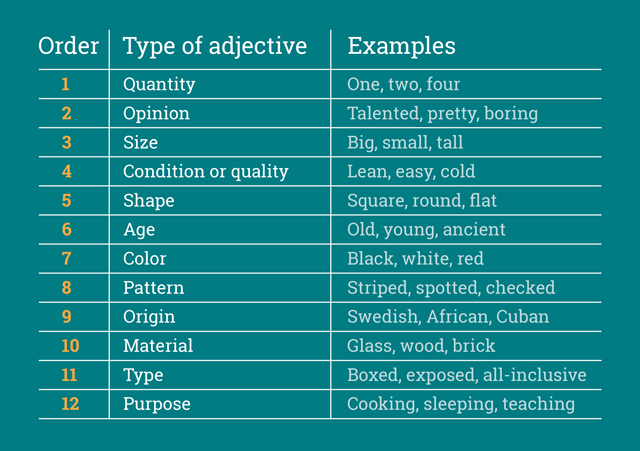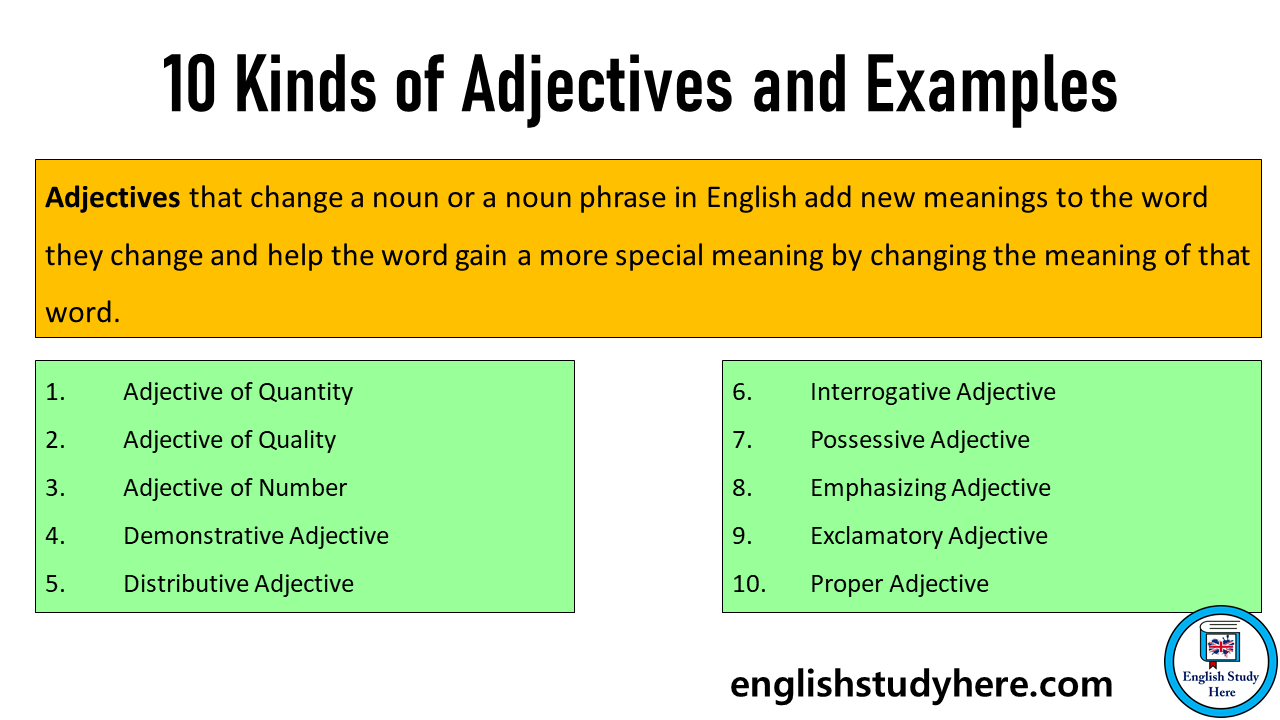What Does Adjectives Mean?

The Ultimate Guide To Adjectives - UAGC Writing Center

"My kids, [who are] pleased to go cruising, remain in the rear seats.", which work as nouns. One method this happens is by eliding a noun from an adjective-noun noun expression, whose remnant hence is a nominalization. In the sentence, "I read 2 books to them; he chose the unfortunate book, but she chose the pleased", pleased is a nominalized adjective, short for "pleased one" or "pleased book".

50 Adjectives Words List and Examples - GrammarSimple.Com

Top 100 Italian Adjectives - Commonly Used Words
In such cases, the adjective might work as a mass noun (as in the preceding example). In Read This , it may also operate as a plural count noun denoting a cumulative group, as in "The meek will acquire the Earth", where "the meek" means "those who are meek" or "all who are meek".
In some languages, the words that serve the semantic function of adjectives are categorized together with some other class, such as nouns or verbs. In the phrase "a Ford car", "Ford" is unquestionably a noun however its function is adjectival: to customize "automobile". In some languages adjectives can work as nouns: for instance, the Spanish expression "" suggests "a red [one].
Such an analysis is possible for the grammar of Requirement Chinese, for example. Various languages do not utilize adjectives in exactly the exact same circumstances. For instance, where English uses "to be hungry" (hungry being an adjective), Dutch, French, and Spanish use "", "", and "" respectively (actually "to have cravings", the words for "hunger" being nouns).

Adjectives are Awesome! - Rowntree Montessori Schools
Rumored Buzz on Spanish Adjectives - StudySpanish.com
In languages that have adjectives as a word class, it is usually an open class; that is, it is reasonably typical for new adjectives to be formed through such processes as derivation. However, Bantu languages are well known for having just a little closed class of adjectives, and new adjectives are not quickly derived.
